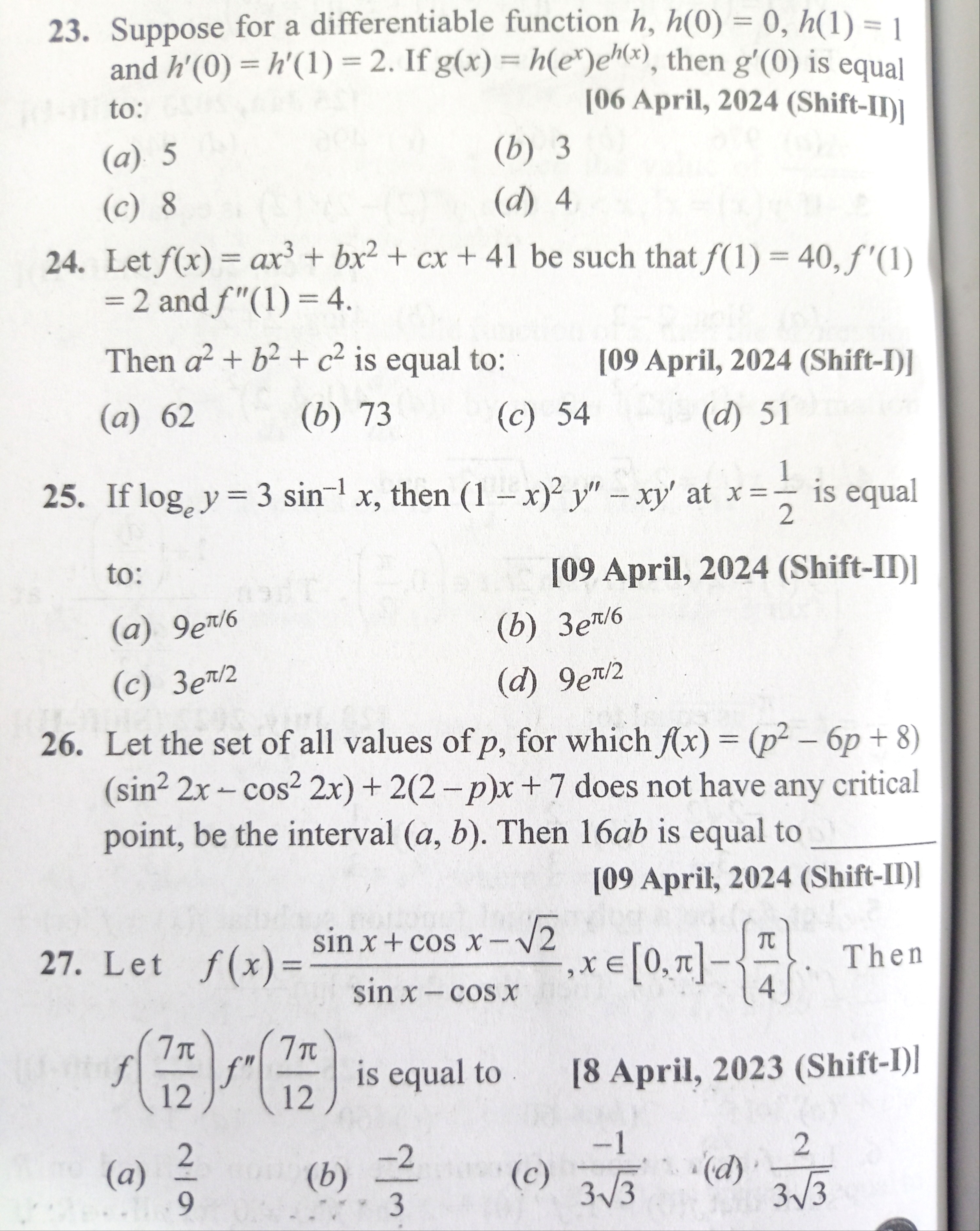Question
Question: Suppose for a differentiable function h, h(0) = 0, h(1) = 1 and h'(0) = h'(1) = 2. If g(x) = h(eˣ)eʰ...
Suppose for a differentiable function h, h(0) = 0, h(1) = 1 and h'(0) = h'(1) = 2. If g(x) = h(eˣ)eʰ⁽ˣ⁾, then g'(0) is equal to:

A
5
B
3
C
8
D
4
Answer
4
Explanation
Solution
The given function is g(x)=h(ex)eh(x). We need to find g′(0).
First, find the derivative of g(x) using the product rule (uv)′=u′v+uv′: Let u=h(ex) and v=eh(x). Then u′=dxd(h(ex))=h′(ex)⋅ex (using chain rule). And v′=dxd(eh(x))=eh(x)⋅h′(x) (using chain rule).
So, g′(x)=u′v+uv′ g′(x)=(h′(ex)⋅ex)⋅eh(x)+h(ex)⋅(eh(x)⋅h′(x)) g′(x)=eh(x)[exh′(ex)+h(ex)h′(x)]
Now, substitute x=0: g′(0)=eh(0)[e0h′(e0)+h(e0)h′(0)] g′(0)=eh(0)[1⋅h′(1)+h(1)⋅h′(0)]
We are given the following values: h(0)=0 h(1)=1 h′(0)=2 h′(1)=2
Substitute these values into the expression for g′(0): g′(0)=e0[1⋅2+1⋅2] g′(0)=1[2+2] g′(0)=1⋅4 g′(0)=4
